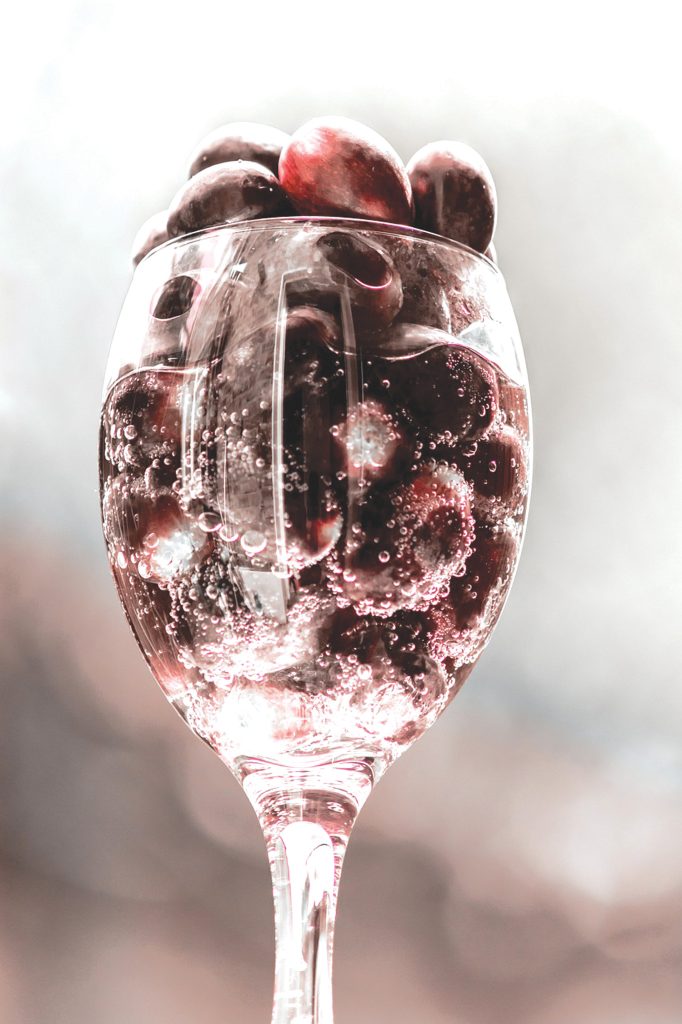News from the Noteworthy from LEAF
Examining Red Wine, Health and Nutrition

March is National Nutrition Month. Nutrition and alcohol are two topics that often raise questions and controversies. One of the compounds that has attracted attention in this context is resveratrol, a nutrient found in the skin of grapes and other foods.
Resveratrol has been shown to have antioxidant and anti-inflammatory properties, which may protect the heart, brain, and blood vessels from damage. However, the evidence for its health benefits is not conclusive, and more research is needed to determine the optimal dose, safety, and effectiveness.
Drinking red wine, which contains resveratrol, may have some advantages over other alcoholic beverages, as it has shown some potential to lower LDL (bad) cholesterol, prevent blood clots and reduce inflammation. However, drinking alcohol of any kind can have negative effects on the liver, brain and overall health. The American Heart Association recommends limiting alcoholic beverages to one per day for women and two per day for men. Therefore, limiting consumption is key when it comes to alcohol.
It is important to note that the benefits of resveratrol and red wine are based on correlations, not causation. This means that there may be other factors that influence the health outcomes of people who consume them, such as genetics, lifestyle, diet and other environmental factors.
Overall, resveratrol is a promising compound that may offer some protection against chronic diseases, but it is not a magic bullet. A balanced diet that includes fruits, vegetables, whole grains, nuts, and seeds can provide a variety of antioxidants and polyphenols that work together to support health.
Resveratrol can be obtained from non-alcoholic sources such as grapes, grape juice, peanuts, cocoa and berries. Here are some festive, alcohol-free alternatives that can offer the benefits of resveratrol without the risks of alcohol:
- Mulberry smoothie: Mulberries are the richest natural food source of resveratrol, containing 5 mg per 100 g. You can blend fresh or frozen mulberries with yogurt, milk or plant-based milk to make a creamy and delicious smoothie.
- Cranberry spritzer: Cranberries are another fruit that contains resveratrol, as well as vitamin C and other antioxidants. You can mix cranberry juice with sparkling water and ice to make a refreshing spritzer. Add some lime juice or fresh mint leaves for extra flavor.
- Hot cocoa: Cocoa is a source of resveratrol as well as flavonoids that have shown potential benefit for blood pressure and mood. You can make a cozy cup of hot cocoa by heating milk or plant-based milk with cocoa powder and sweetener of your choice. Sprinkle some cinnamon or nutmeg on top for extra warmth.
- Berry punch: Berries such as blueberries, raspberries and strawberries contain resveratrol as well as other phytochemicals that can protect against oxidative stress and inflammation. You can make a festive berry punch by combining berry juice with sparkling water and adding some fresh berries as garnish.
- Grape Chillers: Grapes are the most well-known source of resveratrol, especially red and purple varieties. You can make a simple grape mocktail by blending seedless grapes or grape juice with ice and sparkling water until smooth. Garnish with frozen grapes and a few sprigs of mint on a toothpick.
Julie Dostal is executive director of the LEAF Council on Alcoholism & Addictions, Oneonta.

